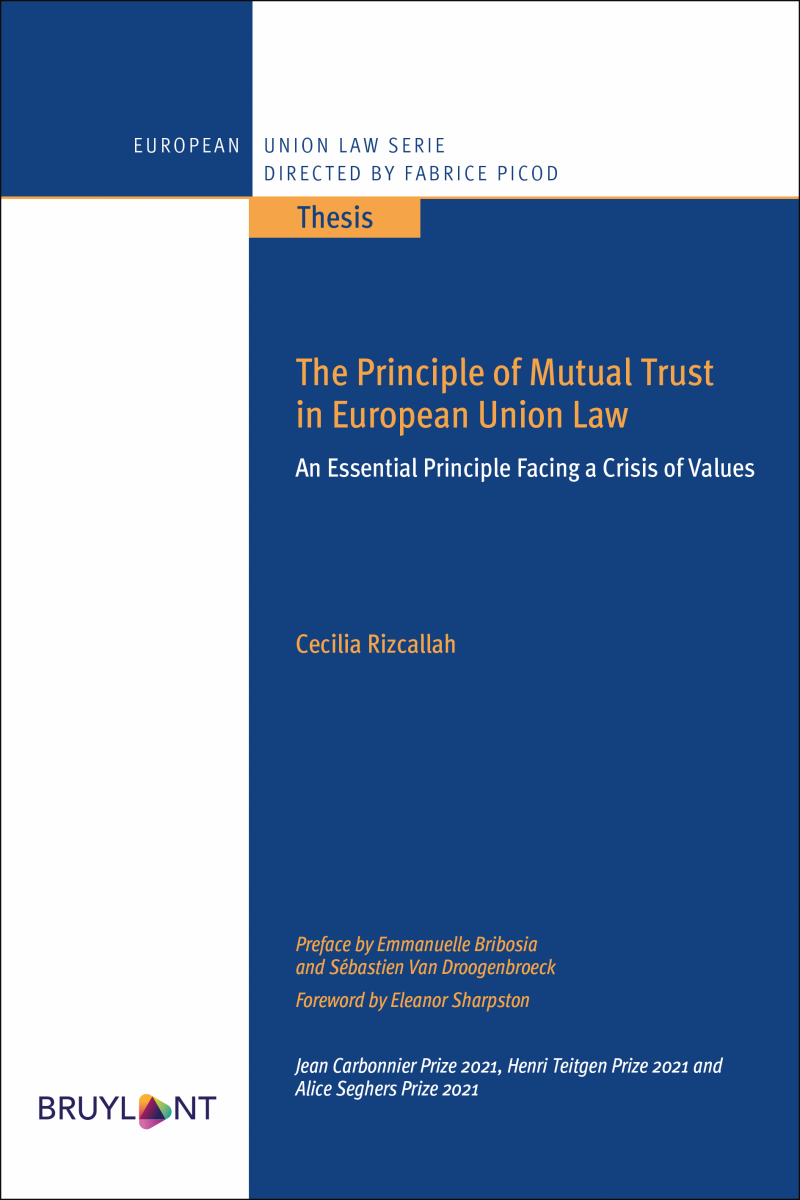 maestro
mastercard
visa
maestro
mastercard
visa

The Principle of Mutual Trust in European Union Law
An Essential Principle Facing a Crisis of Values

According to the Court of Justice of the European Union, the legal structure of the European Union: ‘is based on the fundamental premiss that each Member State shares with all the other Member States, and recognises that they share with it, a set of common values on which the EU is founded, as stated in Article 2 TEU.’ Fundamental rights, the rule of law and democracy occupy a central place among these common values. The Court holds that this premiss ‘implies and justifies the existence of mutual trust between the Member States.’
However, for several years, the European Union has been suffering from a crisis of values. This crisis stems from the undermining of the values on which the European Union is supposedly based. Yet, references to mutual trust between Member States has never been more prevalent in the official discourse. Like the adage ‘there is never so much talk about water as in the desert,’ is the rise in popularity of mutual trust symptomatic of the climate of mistrust between the Member States?
This book centres around this question, raised by the success of the principle of mutual trust at a time when the context betrays fundamental divisions between the Member States regarding the meaning of European integration and the values on which it is based.
To answer this question, the first part of the book seeks to clear the ground and to offer a cross-cutting definition of the principle of mutual trust in EU law, which applies both to internal market law and to the law of the area of freedom, security and justice. In this respect, the presumptive mechanism seems to offer the best description of the principle studied.
The second part of the book analyses the apparently consubstantial link between this principle and the founding values of the EU. In that regard, it appears that the common set of values has an ambivalent relationship with the principle of mutual trust, being both its normative basis and its imperfect limit.
The book closes with a third part analysing the essential role played by the principle of mutual trust in EU law at the intersection of the imperatives of unity, diversity and equality which drive European integration. Given the threats currently faced by the founding values of the EU, it argues in favour of moving mutual trust from the rank of postulate to that of method.
Version numérique disponible sur :
- Strada lex Belgique
- Strada lex Luxembourg
- Strada lex Europe
Vous êtes abonné ? Activez gratuitement la version numérique grâce au code présent dans l’ouvrage.
| Type de produit | Livre |
|---|---|
| Format | Livre broché |
| EAN / ISSN | 9782802771968 |
| Nom de la collection | Collection droit de l'Union européenne - Thèses |
| Poids | 960 g |
| Disponibilité | En stock |
| Nombre de pages | 606 p. |
| Avec exercice intégré | Non |
| Editeur | Larcier |
| Langue | Français |
| Date de publication | 28 oct. 2022 |
| Disponible sur Strada Belgique | Oui |
| Disponible sur Strada Europe | Oui |
| Disponible sur Strada Luxembourg | Oui |
Preface
Foreword
Remerciements
List of key abreviations
Contents
General introduction
Part I – Definition. The principle of mutual trust: an ambivalent assumption of the equivalence of national legal solution
Title I – The principle of mutual trust in the discourse of the european institutions: a dissonant concept
Title II – The principle of mutual trust in EU law: an attempt at reconstructing the doctrine
Part II – Basis and limit. The common values: an uncertain basis and an imperfect limit for the principle of mutual trust
Title I – The common values: an uncertain basis
Title II – The common values: an imperfect limit
Part III – Purpose and optimisation. The principle of mutual trust: an essential but perfectible principle of governance
Title I – The purpose of governance based on the principle of mutual trust
Title II – Proposal for a new trust-based mode of governance: from a postulate to a method for managing assumed and regulated risks
General conclusion
Index
Case law table